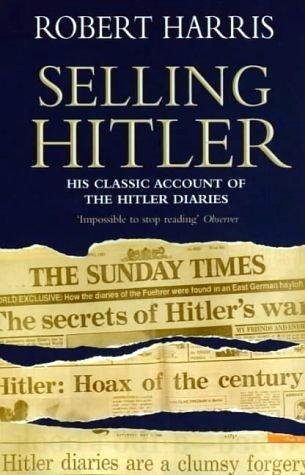More on this book
Kindle Notes & Highlights
Read between
February 18, 2020 - February 16, 2025
The Channel Islands would be handed over to the Strength Through Joy organization ‘for, with their wonderful climate, they constitute a marvellous health resort’.
Only Jesus Christ has had more words devoted to him than Hitler.
their suspicions apparently were not aroused even by his additional claim to have spent eighteen months on the planet Venus.
One of the most singular features of the Nazi phenomenon was the extent to which National Socialism ultimately proved to be totally dependent upon its creator.
As Professor J. P. Stern put it, people who had once followed him had ‘real difficulty in recalling the message now that the voice was gone’. Afterwards this served to focus yet more attention on Hitler. How did he do it? What was he like?
. In his quiet, urgent voice he conjured up a glowing vision of the future: the yacht, fully restored to her former splendour, would be permanently moored off the coast of ‘an island in the Atlantic’ (Heidemann’s suggestion was Jersey);
Lord Bath acquired the pictures for posterity and confessed to a certain ‘admiration’ for the Nazi leader: ‘Hitler did a hell of a lot for his country,’ he explained.
(When someone demonstrated to him that one of the outlawed painters, Franz Marc, was capable of producing ‘traditional’ pictures, Hitler was genuinely puzzled. ‘He could even draw properly,’ he commented, ‘so why didn’t he do it?’) Hitler himself was a painter of such meagre talent that he rarely attempted to depict human beings; he confined himself to stilted pictures of buildings and landscapes.
Whatever Hitler lacked in artistic merit he made up for in industry. He is estimated to have produced between 2000 and 3000 drawings, sketches, watercolours and oils.
by playing on two of the most ancient of human weaknesses – vanity and greed.
Having compared cutlery the two men settled to business.
The impending fiasco, swollen by the profligacy of West Germany’s journalism, was abetted by the parsimony of Great Britain’s.
At his first dinner on High Table, Trevor-Roper was said to have objected to the consistency of the soup. ‘Gentlemen,’ he announced, ‘only have clear soup at dinner.’ The following evening’s menu began with Potage de Gentilhomme, a soup thick enough for the Master to stand his spoon in.
There was no liking between Murdoch and Trevor-Roper. The Australian tycoon regarded the Master of Peterhouse as a typical English establishment waxwork of the type he had been forced to acknowledge in order to purchase The Times. He was also ‘too clever by half’: Harold Evans described the historian at board meetings of Times Newspapers, sitting with ‘eyes screwed up behind pebble glasses . . . permanently sniffing the air for non sequiturs’. For his part, Trevor-Roper thought Murdoch ‘an awful cad’.
Finally, Heidemann conducted Trevor-Roper into an area with a few mementoes of Idi Amin. ‘Those’, he said, pointing to a pair of voluminous white cotton drawers, ‘are Idi Amin’s underpants.’


